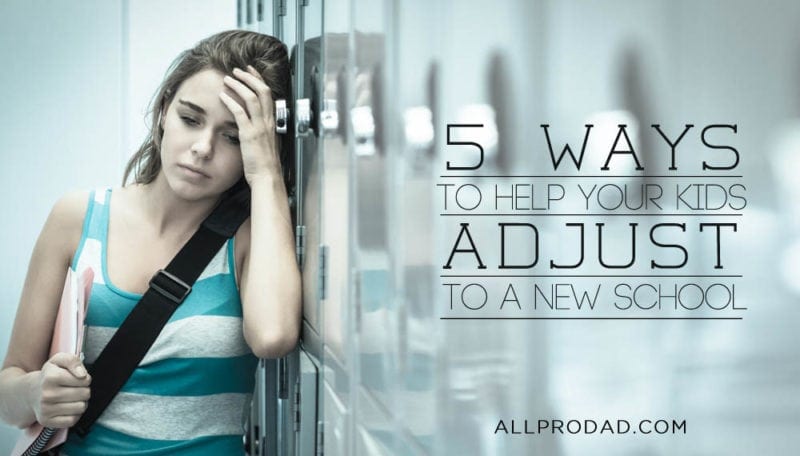When I first picked up a golf club, I had been playing baseball for years. Simply out of habit, because I’d only ever held a baseball bat, I began holding the golf club like a bat. No matter how hard I swung or how I adjusted my stance, I couldn’t get the golf ball to go the direction I wanted until someone taught me how to grip the club correctly. Little did I know that my grip had been sabotaging my swing. In the same way, there are things we sometimes do as parents that can lead to a child failing school.
All of us want our kids to have a great school year, but sometimes we inadvertently set them up for difficulty. Here are 5 ways you’ll sabotage your kids’ school year unless you adjust your grip.
1. Make sure they are in charge of their bedtime.
Somewhere along the line, every child became convinced that sleep is the enemy of all that is good and holy. No children are ever convinced they need sleep. I once took my teen to see the pediatrician because we were afraid she had thyroid problems. It runs in my family, and the symptoms all seemed to line up: sluggishness, depression, trouble concentrating. However, her tests all came back negative. The doctor then asked how much sleep she gets each night. My daughter is really bright and studies a lot. She’s often up late doing homework.
“About five to six hours a night,” she replied.
“Oh,” the doctor said. “You’re sleep-deprived.”
Needless to say, we instituted a bedtime that night. We had to adjust our grip. Make sure your kids get adequate sleep. Don’t let them tell you when they should go to bed. They are novices. They need you to coach them.
2. Assume they’ll let you know if they need anything.
Sometimes they will, if you’re lucky. But more often, they won’t. Unfortunately, we as parents get so busy that we assume no news is good news. If they aren’t obviously struggling, all must be well. You need to adjust your grip.
I know you have so much to give your attention to, but nothing is more critical than your kids. Ask questions. Be interested in them and their lives. Make them put down their phones and have a five-minute conversation with you. You need to take initiative, or your child will be left to fend for him or herself.
3. Pass off responsibility for their education to the school.
Of course teachers and counselors are on the front lines of educating your children, and we need to let them do their jobs. But don’t assume that means you have no responsibility in the matter. Unfortunately, many of us think our job in our kids’ education is making sure they show up each day. The education portion—well that’s why we pay taxes! You need to adjust your grip.
Students thrive when their parents are engaged. And by engaged, I don’t mean riding them about getting A’s. I mean asking them about what they are learning, helping them process whether they should be taking honors or academic courses, working with them to discern whether tutoring would be helpful, challenging them to take risks and try new things. You know your children better than anyone. Take an active role in their education.
4. Allow ‘busy’ to be the excuse you use for lack of family rhythms.
Most parents feel overwhelmed with life. There’s far too much going on. We’re too busy. If I kindly can suggest, if you are too busy to invest in your kids’ development, you are too busy. You need to adjust your grip.
You get one go at investing in your kids, teaching them to love reading, helping them navigate the challenging teen years, developing them into the kind of people who live well in the world. To simply shrug your shoulders and say I’m too busy is lazy. Make time to have regular family rhythms like meals together, evening prayers, movie nights. It doesn’t have to be over the top. Be reasonable. Fifteen minutes a day can work wonders, but be as consistent as possible.
5. Focus on grades over education.
You are not sending your child to school to get grades. You’re sending him or her to get an education. Grades tell you something, but they don’t tell you everything. If the only question you know to ask your child is what’s your grade in ____, you are not setting him or her up well. Adjust your grip.
Help your child focus on improving. Like long-distance runners, your kids are competing against themselves, not the field. What you really want to see from your child is not a certain GPA but growth.
Sound off: What are the ways you as a parent have learned to adjust your grip?











Huddle up with your kids and ask, “What’s one thing you plan to do to make this school year great?”